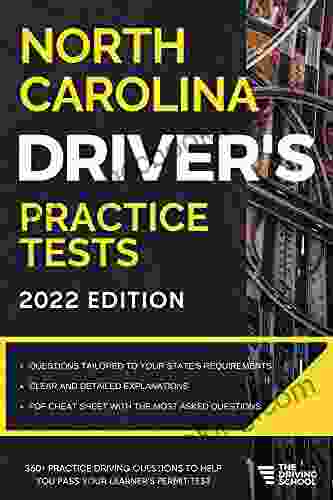Five Essential Ways to Conduct Qualitative Analysis: A Comprehensive Guide

Qualitative analysis, a crucial research methodology within the social sciences, offers invaluable insights into human behavior, experiences, and social phenomena. Unlike quantitative methods that focus on numerical data, qualitative analysis delves into the depths of subjective experiences, exploring the complexities of meaning, emotions, and perceptions. To navigate this rich and nuanced realm, researchers employ a diverse range of methods, each unlocking unique perspectives on the human condition.
This comprehensive guide presents the five essential ways of conducting qualitative analysis, providing a thorough examination of their strengths, applications, and practical considerations. Embark on a journey to unravel the intricacies of qualitative research and discover the means to illuminate the hidden dimensions of human experience.
4.8 out of 5
| Language | : | English |
| File size | : | 2729 KB |
| Text-to-Speech | : | Enabled |
| Screen Reader | : | Supported |
| Enhanced typesetting | : | Enabled |
| Word Wise | : | Enabled |
| Print length | : | 449 pages |
1. Participant Observation
Definition
Participant observation immerses the researcher within the social setting or community being studied, enabling them to observe and engage directly with the participants. This method allows researchers to experience firsthand the daily lives and interactions of their subjects, gaining a deep understanding of their perspectives, values, and behaviors.
Strengths
- Provides rich and detailed insights into the lived experiences of participants.
- Allows researchers to observe natural behaviors and interactions in their real-world context.
- Facilitates the development of trust and rapport with participants.
Applications
Participant observation is particularly well-suited for studying social groups, communities, and subcultures where researchers seek to understand shared norms, beliefs, and practices. It has been widely used in anthropology, sociology, and education research.
Practical Considerations
- Requires significant time and effort to establish rapport and build trust.
- Can be challenging to remain objective and avoid bias.
- Ethical considerations must be carefully navigated to ensure the privacy and well-being of participants.
2. In-Depth Interviews
Definition
In-depth interviews involve one-on-one conversations between the researcher and participants. These interviews delve into the participants' personal experiences, beliefs, and motivations, exploring their perspectives on the research topic in detail.
Strengths
- Provide rich and nuanced data on individual experiences and perspectives.
- Allow for flexibility and probing, enabling researchers to follow up on important insights.
- Can generate highly personal and emotionally charged accounts.
Applications
In-depth interviews are commonly used in psychology, sociology, and health research where researchers seek to understand individual motivations, coping mechanisms, and life experiences.
Practical Considerations
- Require skilled interviewers who can establish trust and encourage participants to share their innermost thoughts.
- Can be time-consuming and resource-intensive.
- Ethical considerations include obtaining informed consent and protecting participant confidentiality.
3. Focus Groups
Definition
Focus groups involve facilitated discussions among a small group of participants who share similar characteristics or experiences. These discussions delve into the group's collective perspectives and dynamics, exploring shared beliefs, attitudes, and behaviors.
Strengths
- Generate a wide range of perspectives and opinions.
- Allow researchers to observe group interactions and dynamics.
- Can be a cost-effective way to gather data from multiple participants.
Applications
Focus groups are often used in market research, product development, and social policy research where researchers seek to understand group preferences, opinions, and decision-making processes.
Practical Considerations
- Require careful recruitment of participants to ensure diversity and representativeness.
- Can be challenging to control group dynamics and ensure that all participants have an opportunity to share their perspectives.
- Ethical considerations include obtaining informed consent and managing confidentiality within the group.
4. Ethnography
Definition
Ethnography is a holistic and immersive research method that involves studying a social group or community over an extended period of time. Researchers conduct participant observation, interviews, and other data collection techniques to gain a comprehensive understanding of the group's culture, norms, and social interactions.
Strengths
- Provides a deeply contextualized and comprehensive view of a social group.
- Allows researchers to capture the complexities and subtleties of everyday life.
- Can generate rich and detailed accounts of cultural practices and beliefs.
Applications
Ethnography is widely used in anthropology, sociology, and education research to study diverse cultural groups, communities, and institutions.
Practical Considerations
- Requires a significant investment of time and resources.
- Can be challenging to maintain objectivity and avoid bias.
- Ethical considerations include obtaining informed consent and protecting the privacy of participants.
5. Grounded Theory
Definition
Grounded theory is an inductive research method that involves generating theory from the data collected through iterative data collection and analysis. Researchers collect and analyze data, generate tentative hypotheses, and continuously refine their theories based on emerging patterns and insights.
Strengths
- Generates theory that is closely grounded in empirical data.
- Allows for flexibility and adaptation as new insights emerge.
- Can be used to develop new and innovative theories to explain social phenomena.
Applications
Grounded theory is commonly used in nursing, social work, and education research to develop theories that explain complex social processes, such as coping mechanisms, resilience, and social support.
Practical Considerations
- Requires a significant amount of data collection and analysis.
- Can be challenging to maintain objectivity and avoid bias.
- Ethical considerations include obtaining informed consent and protecting the privacy of participants.
The five methods of qualitative analysis presented in this guide provide researchers with a diverse toolkit to explore the rich and complex world of human experience. Each method offers unique strengths and applications, allowing researchers to tailor their approach to the specific research question and context. By delving into the intricacies of qualitative analysis, researchers gain invaluable insights into the social, cultural, and psychological dimensions of human life.
Embark on a journey of discovery with this comprehensive guide. Uncover the power of qualitative analysis and unlock the secrets hidden within the depths of human experience. Let the five essential methods illuminate your path to understanding the complexities of human behavior and the kaleidoscope of human experiences.
4.8 out of 5
| Language | : | English |
| File size | : | 2729 KB |
| Text-to-Speech | : | Enabled |
| Screen Reader | : | Supported |
| Enhanced typesetting | : | Enabled |
| Word Wise | : | Enabled |
| Print length | : | 449 pages |
Do you want to contribute by writing guest posts on this blog?
Please contact us and send us a resume of previous articles that you have written.
 Book
Book Novel
Novel Page
Page Chapter
Chapter Text
Text Story
Story Genre
Genre Reader
Reader Library
Library Paperback
Paperback E-book
E-book Magazine
Magazine Newspaper
Newspaper Paragraph
Paragraph Sentence
Sentence Bookmark
Bookmark Shelf
Shelf Glossary
Glossary Bibliography
Bibliography Foreword
Foreword Preface
Preface Synopsis
Synopsis Annotation
Annotation Footnote
Footnote Manuscript
Manuscript Scroll
Scroll Codex
Codex Tome
Tome Bestseller
Bestseller Classics
Classics Library card
Library card Narrative
Narrative Biography
Biography Autobiography
Autobiography Memoir
Memoir Reference
Reference Encyclopedia
Encyclopedia Sandra Bornstein
Sandra Bornstein Robert Morgan
Robert Morgan Lisa Strattin
Lisa Strattin Tony Blackman
Tony Blackman Richard D Easton
Richard D Easton Todd Phillips
Todd Phillips Taylor Harris
Taylor Harris Richard Harris
Richard Harris Richelle Mead
Richelle Mead Suman Sarkar
Suman Sarkar Susan Rovezzi Carroll
Susan Rovezzi Carroll Shemer Kuznits
Shemer Kuznits Rick Stanton
Rick Stanton Rea Manderino Phd
Rea Manderino Phd Zach Selch
Zach Selch Rod Vick
Rod Vick Ron Chepesiuk
Ron Chepesiuk Xiaohu Wang
Xiaohu Wang Seth Godin
Seth Godin Sarah Guido
Sarah Guido
Light bulbAdvertise smarter! Our strategic ad space ensures maximum exposure. Reserve your spot today!

 Jeremy CookScience Fiction Space Opera With Adventure, Love, Loss, and Redemption: Dive...
Jeremy CookScience Fiction Space Opera With Adventure, Love, Loss, and Redemption: Dive...
 Owen SimmonsUnleash Your Inner Toymaker with "Make Sew Toys": A Comprehensive Guide to...
Owen SimmonsUnleash Your Inner Toymaker with "Make Sew Toys": A Comprehensive Guide to... Leon FosterFollow ·11.5k
Leon FosterFollow ·11.5k Hassan CoxFollow ·14.5k
Hassan CoxFollow ·14.5k Clay PowellFollow ·16k
Clay PowellFollow ·16k Giovanni MitchellFollow ·12.5k
Giovanni MitchellFollow ·12.5k Reed MitchellFollow ·7.7k
Reed MitchellFollow ·7.7k Levi PowellFollow ·16.2k
Levi PowellFollow ·16.2k Harvey HughesFollow ·7.3k
Harvey HughesFollow ·7.3k Alexander BlairFollow ·15k
Alexander BlairFollow ·15k

 Steven Hayes
Steven HayesEmbark on Unforgettable Adventures: Discover the Best of...
Unveiling the Enchanting Trails of the...

 Jarrett Blair
Jarrett BlairMaster the Road: Ace Your North Carolina Driver's Test...
Unlock the Secrets to...

 Brent Foster
Brent FosterDk Essential Managers Understanding Accounts: Your...
In today's...

 Isaac Mitchell
Isaac MitchellPrognosis: A Memoir of My Brain - A Journey of Hope and...
In 2013, Eve Ensler was diagnosed with a...
4.8 out of 5
| Language | : | English |
| File size | : | 2729 KB |
| Text-to-Speech | : | Enabled |
| Screen Reader | : | Supported |
| Enhanced typesetting | : | Enabled |
| Word Wise | : | Enabled |
| Print length | : | 449 pages |












